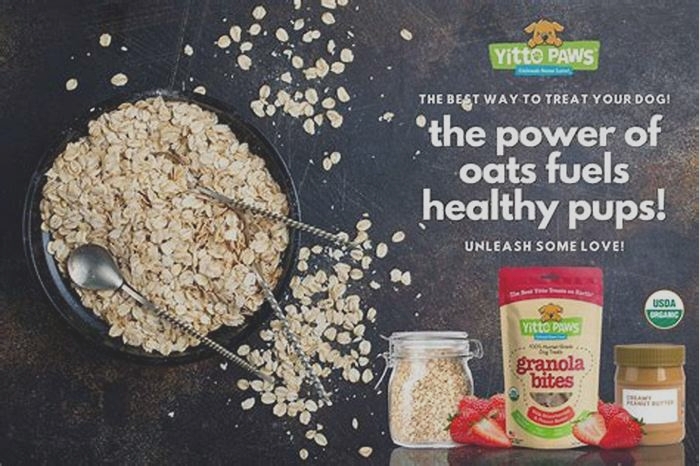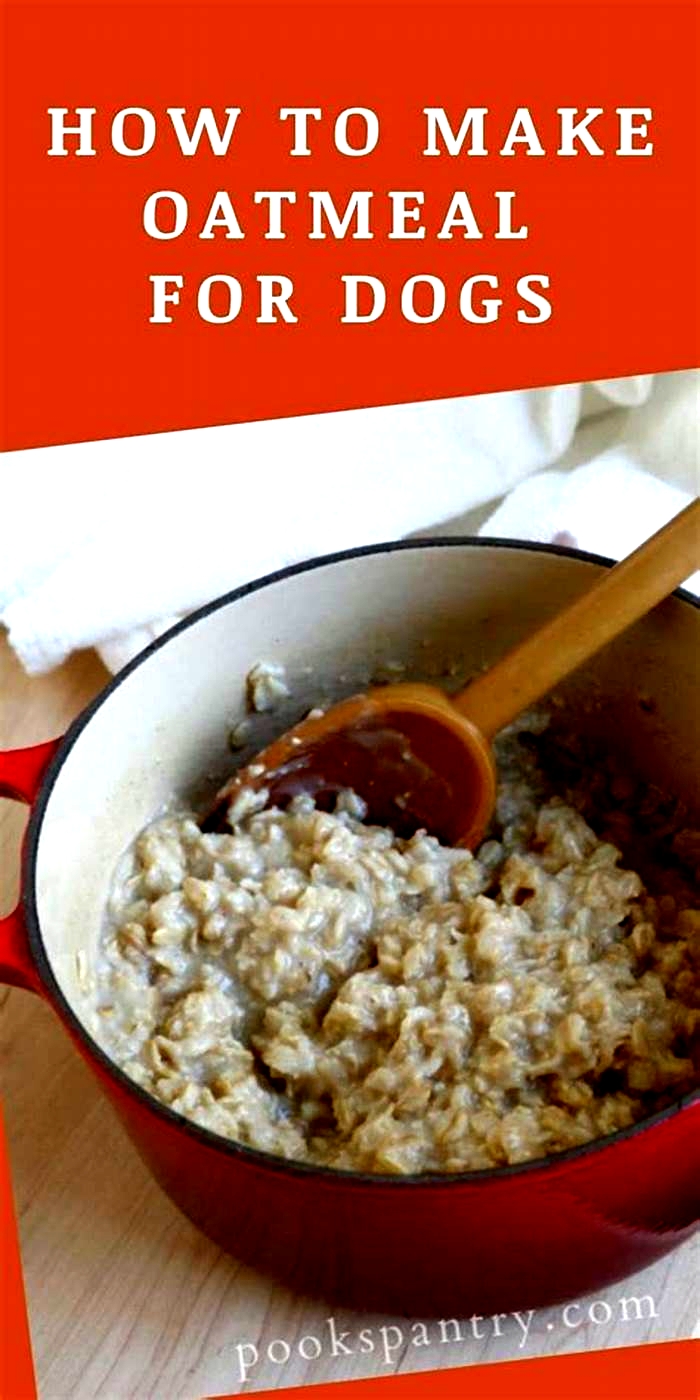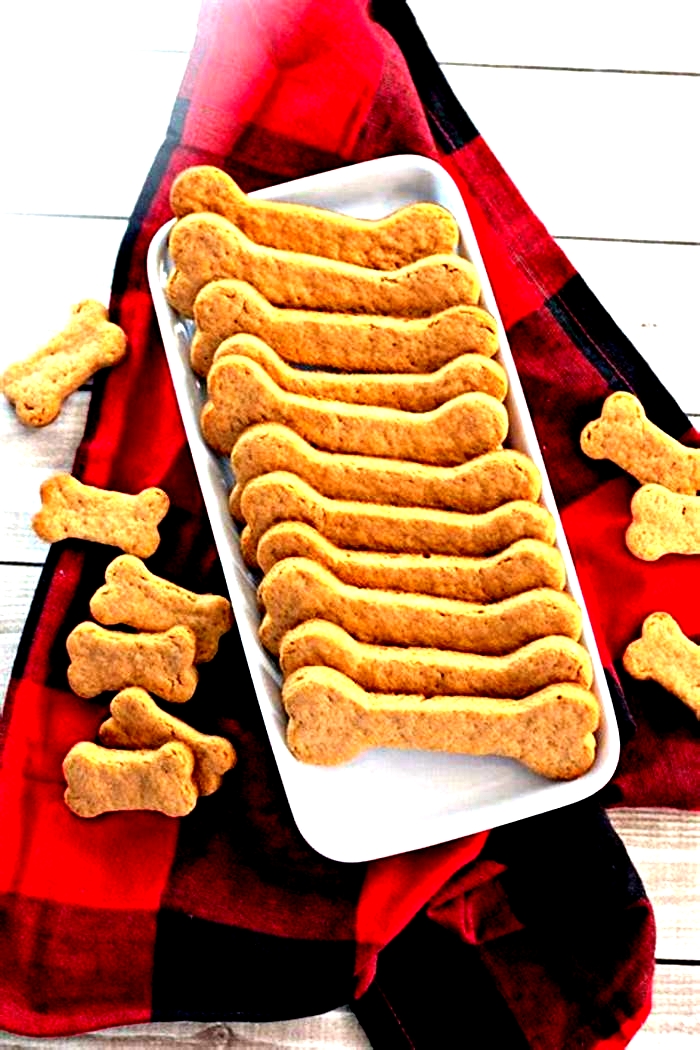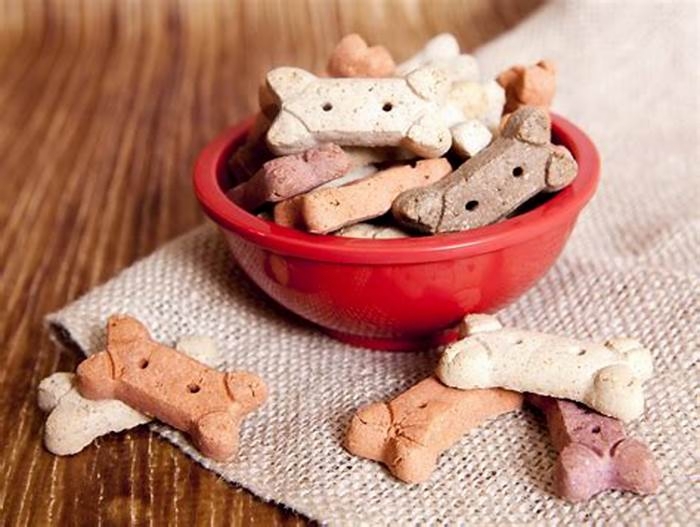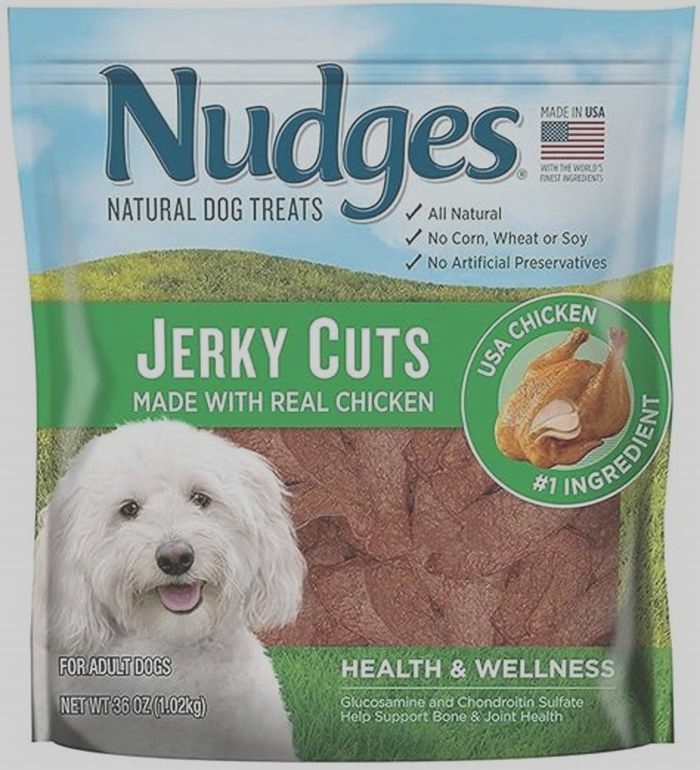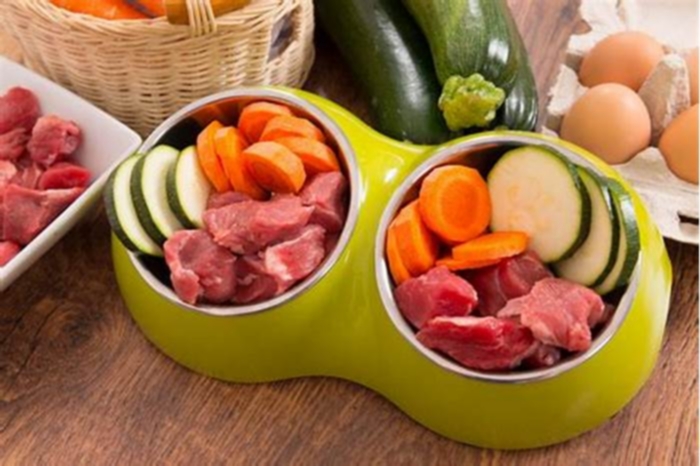is oatmeal healthy for dogs
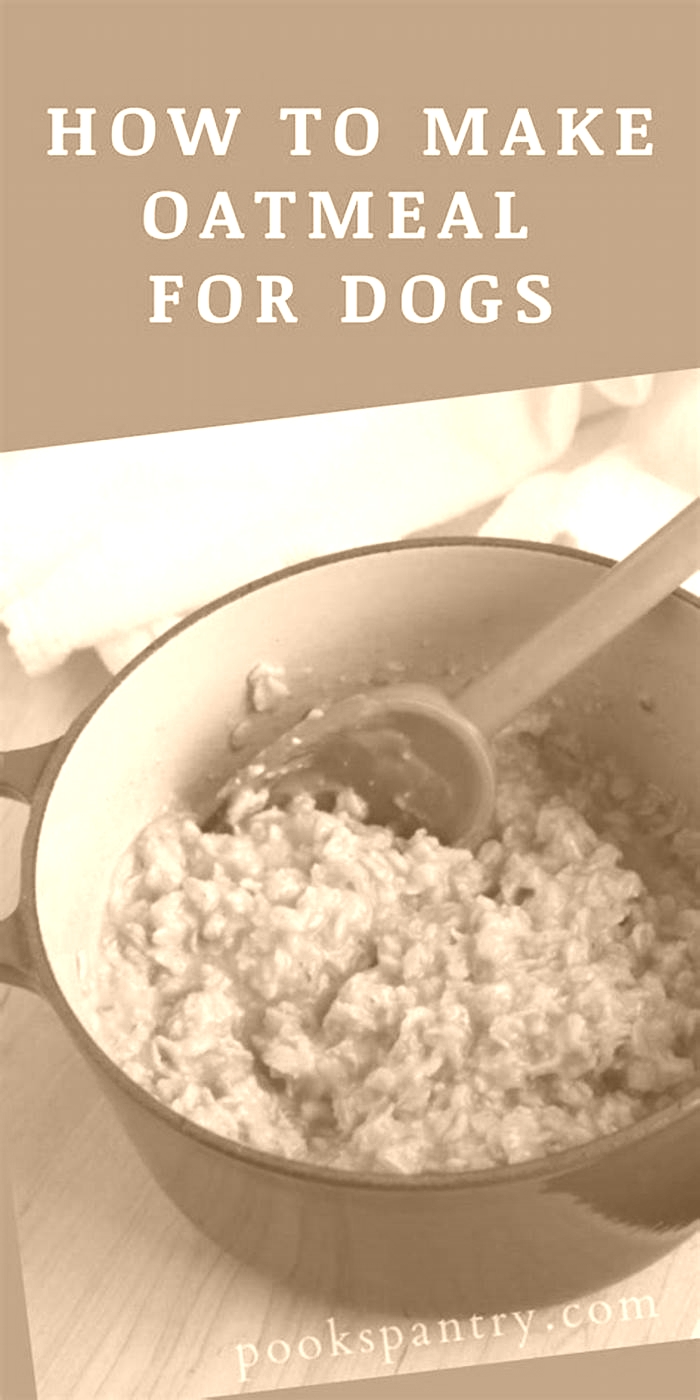
What Kind of Oatmeal Can Dogs Eat: A Guide to Safe and Healthy Options
Is Oatmeal Good For Dogs?
Oatmeal is a nutritious food that can be beneficial for dogs when served in moderation. It is a great alternative carbohydrate for dogs who may be sensitive to wheat or other grains. Oatmeal is a good source of fiber, which can help regulate a dogs digestive system and promote bowel regularity.
When serving oatmeal to dogs, it is important to avoid adding sugar or salt. Also, avoid using milk and instead use water to cook the oatmeal. This is because milk may not be easily digestible for dogs and can cause digestive issues.

It is recommended to feed dogs cooked oatmeal instead of raw oats. Cooked oatmeal is easier to digest and is less likely to cause upset stomachs. It is also important to serve oatmeal made from whole grain oats instead of processed grains. Whole grains offer more health benefits and are more nutritious.
When serving pre-packaged oatmeal, check the ingredient list first. Make sure that it does not contain any harmful ingredients such as raisins or xylitol, which can be toxic to dogs.
In general, dogs can eat oatmeal in moderation. The recommended serving size is one tablespoon of cooked oatmeal for every 20 pounds of a dogs weight. However, it is important to consult with a veterinarian before adding any new foods to a dogs diet, especially if the dog has any health issues or dietary restrictions.
Overall, oatmeal can be a healthy addition to a dogs diet when served in moderation and prepared properly.
Benefits of Oatmeal for Dogs

Oatmeal is a nutritious food that can provide several benefits to dogs when given in moderation. Here are some of the benefits of oatmeal for dogs:
1. Good Source of Fiber
Oatmeal is an excellent source of fiber, which is essential for maintaining a healthy digestive system in dogs. Fiber helps regulate bowel movements and can prevent constipation and diarrhea. It can also help dogs feel full, which can be beneficial for weight management.
2. Provides Essential Nutrients
Oatmeal contains several essential nutrients that dogs need to stay healthy, such as vitamin B and linoleic acid. Vitamin B helps maintain a healthy coat, while linoleic acid is a type of omega-6 fatty acid that helps maintain the strength of dogs skin. Oatmeal is also a good source of iron, which is necessary for the production of red blood cells.
3. Can Help Lower Cholesterol
Studies have shown that oat beta glucan, a type of fiber found in oatmeal, can help lower cholesterol levels in dogs. This can be beneficial for dogs with high cholesterol or those at risk of developing heart disease.
4. Alternative Carbohydrate Source
Oatmeal is a great alternative carbohydrate source for dogs who may be sensitive to wheat or other grains. It is also a good option for dogs with food allergies or intolerances.
When feeding oatmeal to dogs, it is important to avoid adding sugar, salt, or any other additives that can be harmful to their health. Plain, cooked oatmeal is the best option for dogs. It is also important to feed oatmeal in moderation to avoid any digestive issues.
Types of Oatmeal Dogs Can Eat

When it comes to feeding your furry friend oatmeal, its important to choose the right type. Here are some types of oatmeal that are safe for dogs to eat:
Plain Oatmeal
Plain oatmeal is a safe and healthy option for dogs. Its important to avoid flavored oatmeal, as it may contain added sugars and other ingredients that can be harmful to dogs. When preparing plain oatmeal for your dog, its best to cook it with water or low-sodium chicken broth and avoid adding any salt or other seasonings.
Steel Cut Oats
Steel cut oats are a type of oatmeal that is minimally processed and retains more of its natural nutrients than other forms of oatmeal. They are a good source of fiber and protein, making them a great choice for dogs. However, they take longer to cook than other forms of oatmeal, so its important to plan ahead when preparing them for your dog.
Rolled Oats
Rolled oats are a more processed form of oatmeal that are flattened with large rollers. They are a good source of fiber and protein, but may not be as nutrient-dense as steel cut oats. They are also easier to cook than steel cut oats, making them a convenient option for busy pet owners.
Instant Oats
Instant oats are the most processed form of oatmeal and may contain added sugars and other ingredients that can be harmful to dogs. Its best to avoid feeding instant oats to your dog and opt for plain or minimally processed forms of oatmeal instead.
In conclusion, plain oatmeal, steel cut oats, and rolled oats are safe and healthy options for dogs to eat. Its important to avoid flavored and instant oats, which may contain added sugars and other ingredients that can be harmful to your furry friend.
When preparing oatmeal for your dog, its best to cook it with water or low-sodium chicken broth and avoid adding any salt or other seasonings.
Ingredients With Oatmeal You Should Avoid

While oatmeal can be a healthy and nutritious addition to a dogs diet, its important to be careful about what ingredients are added to it. Here are some ingredients to avoid when feeding your dog oatmeal:
Sugar
Added sugar can be harmful to dogs and can lead to weight gain, dental problems, and other health issues. Its best to avoid adding any sugar to your dogs oatmeal.
Salt
While a small amount of salt is not harmful to dogs, too much can lead to dehydration and other health problems. Its best to avoid adding salt to your dogs oatmeal.
Raisins and Grapes
Raisins and grapes can be toxic to dogs and can cause kidney failure. Its important to avoid adding any raisins or grapes to your dogs oatmeal.
Chocolate
Chocolate contains theobromine, which can be toxic to dogs and can cause vomiting, diarrhea, and other health problems. Its important to avoid adding any chocolate to your dogs oatmeal.
Artificial Sweeteners
Artificial sweeteners, such as xylitol, can be toxic to dogs and can cause vomiting, loss of coordination, and seizures. Its important to avoid adding any artificial sweeteners to your dogs oatmeal.
In summary, when feeding your dog oatmeal, its important to avoid adding any sugar, salt, raisins, grapes, chocolate, or artificial sweeteners. By being careful about what ingredients are added to the oatmeal, you can ensure that your dog is getting a healthy and nutritious treat.
How to Prepare Oatmeal for Dogs
Oatmeal is a nutritious and healthy food option for dogs when served in moderation. However, it is important to prepare it properly to ensure that it is safe for your furry friend to consume. Here are some tips on how to prepare oatmeal for dogs:
Use Plain Oatmeal
When preparing oatmeal for your dog, it is important to use plain oatmeal without any added flavors or sweeteners. Flavored oatmeal packets contain artificial sweeteners and other additives that can be harmful to dogs. Plain oatmeal is a healthy and safe option for dogs.
Cook the Oatmeal Thoroughly
Make sure to cook the oatmeal thoroughly before serving it to your dog. Undercooked oatmeal can cause digestive issues and may be difficult for your dog to digest. Cook the oatmeal until it is soft and fully cooked.
Avoid Adding Milk
While some dogs may be able to tolerate small amounts of milk, it is generally best to avoid adding milk to oatmeal. Many dogs are lactose intolerant and may experience digestive issues if they consume milk. Instead, consider adding water or low-sodium chicken broth to the oatmeal to make it more palatable for your dog.
Serve in Moderation
Oatmeal should be served to dogs in moderation. While it is a healthy and nutritious food option, too much oatmeal can cause digestive issues and may lead to weight gain. Consider serving oatmeal as an occasional treat rather than a regular part of your dogs diet.
By following these tips, you can prepare oatmeal for your dog in a safe and healthy way. Remember to always monitor your dogs reaction to new foods and consult with your veterinarian if you have any concerns about your dogs diet.
Potential Risks and Side Effects
While oatmeal can be a healthy addition to a dogs diet, there are some potential risks and side effects to be aware of.
One of the main concerns with feeding oatmeal to dogs is the risk of digestive upset. This can include symptoms such as diarrhea, vomiting, and bloating. To minimize the risk of these side effects, it is important to only feed dogs cooked oatmeal in moderation.
Another potential risk is the presence of harmful ingredients in some types of oatmeal. For example, flavored oatmeal packets may contain added sugars or artificial sweeteners like xylitol, which can be toxic to dogs. Similarly, raisins are a common ingredient in some types of oatmeal, but they can be toxic to dogs and should be avoided.
It is also important to avoid feeding dogs instant oatmeal, as this type of oatmeal often contains added salt and other preservatives that can be harmful to dogs. Instead, opt for plain, unflavored oatmeal that is cooked with water rather than milk.
Overall, while oatmeal can be a healthy addition to a dogs diet, it is important to feed it in moderation and to avoid certain types of oatmeal that may contain harmful ingredients. If you have any concerns about feeding your dog oatmeal, it is always best to consult with your veterinarian.
| Potential Risks and Side Effects |
|---|
| Digestive upset |
| Harmful ingredients in flavored or instant oatmeal |
| Avoid instant oatmeal |
| Feed plain, unflavored oatmeal cooked with water rather than milk |
| Feed oatmeal in moderation |
| Consult with a veterinarian if you have concerns |
Frequently Asked Questions
Can dogs eat oatmeal every day?
Yes, dogs can eat oatmeal every day as long as it is served in moderation and does not replace their regular meals. Oatmeal is a great source of fiber, which can help regulate a dogs digestive system. However, too much oatmeal can lead to weight gain and other health issues.
What kind of oatmeal is safe for dogs?
Plain, unflavored oatmeal is safe for dogs to eat. Avoid oatmeal packets that contain added sugars, flavors, or preservatives, as these can be harmful to dogs. Additionally, it is important to choose steel-cut or rolled oats, as instant oatmeal can contain harmful additives like xylitol.
How should oatmeal be cooked for dogs?
Oatmeal should be cooked with water, not milk, as milk can upset a dogs stomach. It is also important to avoid adding sugar or salt to the oatmeal, as these can be harmful to dogs. Cook the oatmeal as you normally would, and let it cool before serving it to your dog.
What are the benefits of feeding oatmeal to dogs?
Oatmeal is a great source of fiber and can help regulate a dogs digestive system. It also contains vitamin B, which can help maintain a healthy coat, and linoleic acid, which can help maintain the strength of a dogs skin. Additionally, oatmeal is a great alternative carbohydrate for dogs who may be sensitive to wheat or other grains.
Are there any risks associated with feeding oatmeal to dogs?
While oatmeal is generally safe for dogs to eat, it is important to serve it in moderation. Too much oatmeal can lead to weight gain and other health issues. Additionally, dogs with certain medical conditions, such as diabetes, may need to avoid oatmeal altogether.
Can oatmeal help with dog diarrhea?
Oatmeal can help regulate a dogs digestive system and may be beneficial for dogs with mild cases of diarrhea. However, it is important to consult with a veterinarian before feeding oatmeal to a dog with diarrhea, as there may be underlying health issues that need to be addressed.
Can Dogs Eat Oatmeal? (7 Vet Tips You Should Know & Avoid)
Many dog owners, navigating the vast world of pet nutrition, often find themselves pondering a crucial question: Can Dogs Eat Oatmeal? The concern for the well-being of our furry companions propels this query, seeking reassurance and guidance on providing a diet that not only ensures their happiness but also contributes to their overall health.
Its an inquiry that resonates with pet owners who are genuinely invested in the nutritional choices for their dogs, reflecting a universal desire to offer the best care possible.
As a seasoned veterinary professional with years of experience in the field, I understand the depth of this concern and the importance of addressing it with both empathy and expertise. Over the years, Ive encountered countless pet owners navigating the intricacies of pet nutrition, and the question about oatmeal is a common thread.
Drawing on my in-depth knowledge of veterinary medicine and pet nutrition, Im here to provide not just an answer but a comprehensive guide that combines scientific understanding with practical insights, offering a solution to this prevalent query.
If youve been searching for a clear, trustworthy response to the question of whether dogs can eat oatmeal, your quest ends here. In the following sections, Ill delve into the nutritional benefits, potential risks, and practical guidelines for incorporating oatmeal into your dogs diet.
Whether youre seeking information to enhance your dogs meals or looking for a solution to specific dietary concerns, this article is crafted to address your search intent.
Nutritional Benefits of Oatmeal for Dogs
As a seasoned veterinary professional, I understand the importance of providing your furry companions with a well-balanced diet.
When it comes to the question, Can Dogs Eat Oatmeal? its not just about safety but also about the potential nutritional benefits.
Lets delve into the wholesome world of oatmeal and explore why it could be a valuable addition to your dogs diet.
Oatmeals Nutritional Content
Oatmeal, derived from the oat plant, is a nutrient-rich grain that can offer various essential components for your canine friend. Rich in carbohydrates, it serves as a quality energy source. Oatmeal also contains dietary fiber, crucial for digestive health, and a modest amount of protein.
Additionally, it provides essential minerals like manganese, phosphorus, and magnesium. As a veterinary expert, I emphasize the significance of these nutrients in promoting overall well-being in dogs.
Health Benefits for Dogs, Including Fiber and Essential Nutrients
The inclusion of oatmeal in your dogs diet can contribute to several health benefits. The soluble fiber in oatmeal, known as beta-glucans, aids in maintaining healthy cholesterol levels.
Moreover, this fiber plays a pivotal role in regulating blood sugar levels, making oatmeal a potentially beneficial choice for dogs with diabetes.
The presence of antioxidants in oatmeal further supports the immune system, providing an extra layer of defense against oxidative stress. From a veterinary standpoint, these advantages showcase oatmeals potential as a health-conscious addition to your dogs menu.
Comparison with Other Dog-Friendly Grains
While oatmeal boasts commendable nutritional value, its essential to consider it within the context of other dog-friendly grains.
Comparatively, oatmeal offers a distinct advantage due to its soluble fiber content, promoting digestive health. Unlike some grains that may trigger allergies in certain dogs, oatmeal is often well-tolerated.
However, as a veterinary professional, I advise pet owners to observe their dogs for any signs of sensitivity or adverse reactions, as individual tolerances can vary. The key lies in balance and moderation when incorporating grains into your dogs diet.
Also read: Can dogs eat bread?
Risks and Concerns
While oatmeal presents itself as a potentially nutritious addition to your dogs diet, a responsible pet owner should be aware of potential risks and considerations.
As a seasoned veterinary professional, I aim to provide you with a comprehensive understanding of these concerns to ensure the well-being of your canine companions.
Potential Allergens in Oatmeal
Oatmeal is generally well-tolerated by most dogs; however, its essential to recognize the possibility of allergic reactions. Some dogs may exhibit sensitivities to proteins found in oats, leading to symptoms such as itching, gastrointestinal upset, or skin irritations.
As a veterinary expert, I emphasize the importance of introducing new foods, including oatmeal, gradually into your dogs diet.
This allows you to monitor for any adverse reactions and adjust accordingly. In instances of known allergies, consulting with a veterinarian is crucial to determine the best course of action.
Impact on Dogs with Specific Health Conditions
While oatmeal can offer nutritional benefits, its suitability depends on the individual health conditions of your dog. Dogs with certain health issues, such as pancreatitis or diabetes, may need special dietary considerations.
Oatmeal is a carbohydrate-rich food, and in cases of diabetes, careful monitoring of carbohydrate intake is vital. For dogs with pancreatitis, which involves inflammation of the pancreas, a low-fat diet may be more appropriate.
Its essential to consult with a veterinarian to tailor your dogs diet to their specific health needs, ensuring that oatmeal aligns with their overall health management plan.
Flavored or Sweetened Oatmeal
While plain, cooked oatmeal can be a wholesome addition to your dogs diet, caution must be exercised when considering flavored or sweetened varieties.
Artificial additives, sugars, or certain flavorings present in commercial oatmeal products can be harmful to dogs. In my veterinary experience, Ive observed cases where these additives lead to gastrointestinal issues or contribute to obesity.
Opting for plain, unsweetened oatmeal allows you to control the ingredients and ensure that your dog receives the intended nutritional benefits without unnecessary additives.
Also read: Can dogs eat cake?
Preparation and Serving Guidelines
Ensuring that oatmeal is prepared and served in a manner conducive to your dogs health is pivotal. As a veterinary professional deeply invested in your pets well-being, lets explore the guidelines for preparing and serving oatmeal to your canine companions.
Oatmeal Types for Dogs
When selecting oatmeal for your dog, opt for simple and unprocessed varieties. Consider the following:
- Plain Rolled Oats: A basic and easily digestible option.
- Steel-Cut Oats: Providing a hearty texture and additional chewing benefits.
- Unflavored Instant Oats: Choose those without added sugars or artificial flavorings.
These options minimize the risk of unnecessary additives and ensure a wholesome base for your dogs meal.
Proper Cooking Methods to Make Oatmeal Safe for Dogs
To guarantee the safety and digestibility of oatmeal, adhere to these cooking methods:
- Cook Thoroughly: Ensure that the oatmeal is cooked well to enhance digestibility.
- Avoid Sugars and Additives: Steer clear of sweeteners and artificial additives during the cooking process.
- Limit Salt: Dogs require minimal salt in their diet, so be cautious about adding salt during preparation.
By following these methods, you create a simple and nutritious oatmeal base for your dogs consumption.
Suitable Toppings and Additives for Added Nutrition
While oatmeal itself offers nutritional benefits, you can enhance its value with carefully selected toppings. Consider incorporating:
- Fresh Fruits: Blueberries, sliced bananas, or diced apples add vitamins and antioxidants.
- Natural Nut Butters: Peanut or almond butter can provide healthy fats and additional flavor.
- Plain Yogurt: A source of probiotics, contributing to gut health.
However, moderation is key. Too many toppings may lead to excess calorie intake. As a veterinary expert, I recommend experimenting with small portions and observing your dogs response to identify their preferences and tolerance
Also read: Can dogs eat spanish rice?
Moderation and Portion Control
While oatmeal can offer nutritional benefits to your canine companion, the key to a balanced and healthy diet lies in moderation and mindful portion control.
As a veterinary professional, I emphasize the significance of these practices in ensuring the well-being of your beloved pets.
Importance of Controlling Portion Sizes
Maintaining appropriate portion sizes is crucial when incorporating oatmeal into your dogs diet. While oatmeal can provide valuable nutrients, excessive consumption may lead to an imbalance in their overall diet.
As a rule of thumb, the portion size should be proportional to your dogs size, weight, and activity level. Large or active dogs may tolerate larger portions, while smaller or less active dogs require smaller servings.
Consulting with your veterinarian to determine the ideal portion size based on your dogs individual needs is a proactive step toward a healthy and balanced diet.
Frequency of Feeding Oatmeal to Dogs
While oatmeal can be a nutritious addition, it should not constitute a significant portion of your dogs daily intake.
Integrate oatmeal into their diet as an occasional treat or supplement rather than a primary food source. A balanced diet for dogs typically includes a variety of proteins, fats, and carbohydrates.
As a veterinary expert, I recommend incorporating oatmeal into their diet no more than once or twice a week, ensuring that it complements their overall nutritional intake without becoming a predominant component.
Monitoring for Any Adverse Reactions or Changes in Behavior
Every dog is unique, and their response to new foods can vary. When introducing oatmeal or any new element to their diet, closely monitor your dog for any adverse reactions or changes in behavior.
Look out for signs of allergies, digestive upset, or discomfort. These may include itching, vomiting, diarrhea, or changes in energy levels. If you observe any concerning symptoms, consult with your veterinarian promptly.
This proactive approach allows for early detection and appropriate adjustments to ensure the well-being of your furry friend.
Also read: Can dogs eat cheese rind?
Oatmeal Recipes for Dogs
Elevating your dogs dining experience can be a delightful journey, and incorporating oatmeal into homemade recipes adds not only nutrition but also variety to their meals.
As a veterinary professional, Im excited to share simple, dog-friendly oatmeal recipes that cater to both their taste buds and nutritional needs.
Simple Homemade Oatmeal Recipes for Dogs
- Basic Oatmeal Delight:
- Ingredients: Rolled oats, water, and a dash of low-sodium broth.
- Preparation: Cook the rolled oats in a mixture of water and broth until soft. Serve after cooling.
- Benefits: A simple, easy-to-digest base for various additions.
- Pumpkin and Oat Delight:
- Ingredients: Rolled oats, water, canned pumpkin (plain, not sweetened).
- Preparation: Cook rolled oats and mix in canned pumpkin for a fiber-rich and flavorful option.
- Benefits: Pumpkin adds fiber and aids digestion.
- Blueberry Bliss Oats:
- Ingredients: Rolled oats, water, and fresh blueberries.
- Preparation: Cook oats and mix in fresh blueberries for a burst of antioxidants.
- Benefits: Blueberries contribute essential vitamins and antioxidants.
Incorporating Dog-Friendly Ingredients for Variety
- Protein Power Boost:
- Add cooked, lean meats like chicken or turkey to provide additional protein.
- Benefits: Enhances the nutritional profile with quality protein.
- Healthy Fat Fusion:
- Mix in a spoonful of natural nut butter for healthy fats and added flavor.
- Benefits: Supports coat health and provides essential fatty acids.
- Yogurt Twist:
- Incorporate plain yogurt for a dose of probiotics.
- Benefits: Supports gut health and adds a creamy texture.
Creative Ways to Make Oatmeal Appealing to Dogs
To make oatmeal more appealing to your furry friend, consider serving it in creative ways. You can use silicone molds to create fun shapes, mix in dog-friendly fruits, or serve it as a frozen treat during warmer months.
Adding variety to presentation and flavors not only stimulates their senses but also makes mealtime an enjoyable experience.
As a veterinary expert, I encourage experimentation with different ingredients and presentation styles to discover what resonates most with your dogs preferences.
Also read: Can dogs eat mexican rice?
Addressing Common Concerns
As we navigate the terrain of feeding oatmeal to our beloved dogs, its essential to address common concerns and misconceptions that may arise.
As a veterinary professional, I aim to provide clarity on these matters to ensure that pet owners make informed decisions for the well-being of their furry companions.
Clarifying Misconceptions About Oatmeal and Dogs
One common misconception is that all dogs can safely consume any type of oatmeal without consideration.
In reality, individual dogs may react differently to various types of oatmeal, and some may have sensitivities or allergies. Its crucial to differentiate between plain, cooked oatmeal and flavored or sweetened varieties that may contain harmful additives.
By clarifying these distinctions, pet owners can confidently incorporate oatmeal into their dogs diet, armed with accurate information.
Consulting a Veterinarian for Personalized Advice
While general guidelines provide valuable insights, every dog is unique, and their health needs can differ. Consulting with a veterinarian ensures personalized advice tailored to your dogs specific health conditions, dietary requirements, and individual characteristics.
Whether your dog has pre-existing health concerns or unique dietary preferences, a veterinarians expertise provides invaluable guidance to optimize their nutritional intake while accounting for any potential risks or considerations.
Considering Individual Dog Preferences and Dietary Needs
Understanding that dogs, like humans, have individual preferences is essential. Some dogs may eagerly embrace oatmeal in various forms, while others may exhibit preferences for specific textures or flavors.
By observing your dogs response to different oatmeal recipes and variations, you can tailor their meals to align with their preferences and dietary needs.
This approach fosters a positive and enjoyable mealtime experience for your furry friend, contributing to their overall well-being.
Also read: Can dogs eat black rice?
Final Thoughts: Can Dogs Eat Oatmeal?
Yes, dogs can eat oatmeal in moderation. Oatmeal is a nutritious grain that can provide dogs with essential nutrients, including fiber and various minerals.
When preparing oatmeal for dogs, its crucial to use plain, unflavored varieties and avoid adding sugar or artificial additives. Cooking the oatmeal thoroughly and serving it in appropriate portion sizes ensures its digestibility.
However, individual dogs may have different tolerances, and its advisable to monitor for any adverse reactions. Consulting with a veterinarian for personalized advice based on your dogs health and dietary needs is always recommended.
Recap of Key Points
In our journey through the nutritional landscape of oatmeal for dogs, weve unraveled its potential benefits, explored possible risks, and provided practical guidelines for preparation, serving, and moderation.
From understanding oatmeals nutritional content to addressing common concerns and misconceptions, each segment has contributed to a holistic view of incorporating oatmeal into a dogs diet.
The Importance of a Balanced and Mindful Approach
Balancing a dogs diet involves more than just adding or excluding specific foodsit requires a mindful approach.
The nutritional choices we make for our dogs impact their health, vitality, and overall happiness. Oatmeal, when introduced thoughtfully and in moderation, can be a valuable addition, contributing to their nutritional needs while adding variety to their meals.
Responsible Pet Ownership and Informed Decision-Making
The key to fostering a thriving relationship with our canine companions lies in responsible pet ownership and informed decision-making.
Regular consultations with a veterinarian, attentiveness to individual preferences, and a commitment to providing a well-rounded diet contribute to the health and longevity of our beloved pets.
Oatmeal, when integrated into their diet with care, becomes a part of this larger commitment to their overall well-being.
Also read: Can dogs eat jerk chicken?
Frequently Asked Questions on Feeding Dogs Oatmeal?
Can all dogs eat oatmeal, or are there specific breeds that should avoid it?
Dogs of various breeds can generally enjoy oatmeal, but individual tolerances may vary. Its essential to introduce oatmeal gradually, monitor for any adverse reactions, and consult with a veterinarian, especially for breeds prone to food sensitivities.
Are there specific health conditions where oatmeal should be avoided for dogs?
Dogs with certain health conditions, such as diabetes or pancreatitis, may require special dietary considerations. Oatmeal, being carbohydrate-rich, should be introduced cautiously, and consultation with a veterinarian is advised for dogs with specific health concerns.
What types of oatmeal are safe for dogs, and how should it be prepared?
Plain, unflavored oatmeal, such as rolled oats or steel-cut oats, is preferable for dogs. It should be thoroughly cooked and served without sugar or artificial additives. Following proper cooking methods ensures the safety and digestibility of oatmeal for dogs.
How often can dogs eat oatmeal, and what is the recommended portion size?
While oatmeal can be a nutritious addition, it should not be a primary food source. Feeding oatmeal once or twice a week, in proportion to the dogs size and activity level, is a general guideline. Controlling portion sizes is crucial to maintain a balanced diet.
Can oatmeal be used as a treat or part of homemade dog recipes?
Yes, oatmeal can be incorporated into homemade dog recipes as a nutritious component. Simple recipes, such as oatmeal with lean meats or fruits, can provide variety and nutritional benefits. However, its important to avoid flavored or sweetened varieties and maintain moderation in treats to prevent excessive calorie intake.
What Oatmeal Can Dogs Eat?
Can dogs eat oatmeal cream pies?
Can dogs eat oatmeal creme pies?
Can dogs eat oatmeal pies?

